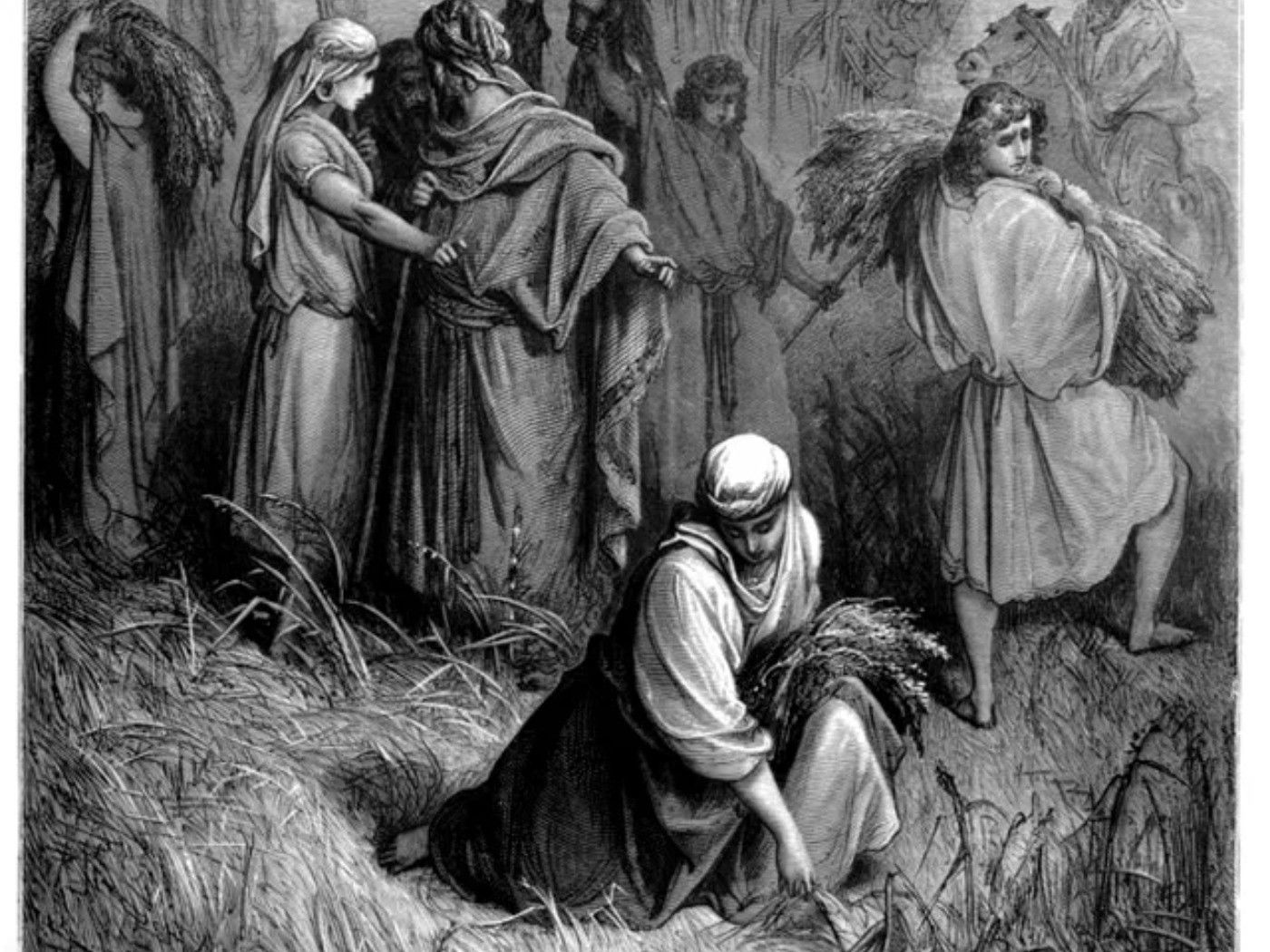Ruth was a young foreign widow who generously left her homeland to care for her mother-in-law, Naomi. The story of Ruth is narrated in the biblical book of the same name, the eighth in the Old Testament.
Ruth was from Moab and chose to embrace faith in God, abandoning the old Moabite gods. Her decision revealed her love for the Lord and for Naomi. Both widows faced the pain of loss but remained united by affection more than by kinship. Together, Ruth and Naomi fought for survival, and with God's grace, they began to feel joy in living again.
The story of Ruth tells that she was a Moabite girl who married Mahlon, a Jew from Bethlehem in Judah, the son of Naomi and Elimelech.
After ten years of marriage, her husband Mahlon died, leaving her in a vulnerable situation alongside her mother-in-law and sister-in-law, who were also widows. At that time, the three widows faced significant hardships in society due to their social status: women, widows, foreigners, without children, husbands, or parents to support them.
The struggle for survival in a foreign land did not prevent Ruth from maintaining her word and integrity. Her worth, affection, and friendship for Naomi remained intact. Ruth worked hard and asked Naomi for permission to go to the fields to gather leftover crops. This was a common practice among the less fortunate in society at that time.

Ruth was surprised by the way God would provide favor and grace for her and her mother-in-law. More than just leftover harvests, God provided an opportunity for a new family story through Boaz. This wealthy man owned the field where Ruth worked and would be her redeemer.
In those times, a redeemer was a close relative who would intervene on behalf of a family member, whether living or deceased. In this case, Boaz would show favor to the family by marrying the widow of Malon, restoring the situation for Naomi and Ruth, and giving them a lineage.
With this unexpected outcome, Naomi's family once again felt the joy of living. Ruth and Boaz married and had a son named Obed. He brought joy to his parents and to his grandmother, who now recognized that God's goodness is always present. Obed was the father of Jesse and the grandfather of King David.
What We Can Learn from Ruth's Story
There are many lessons we can learn from Ruth's story in the Bible, but perhaps the most important is that God does not abandon His people. Despite afflictions, He remains in control.
Ruth demonstrates that God is sovereign in the everyday lives of simple men and women who trust in Him. The Lord continues to fulfill His eternal plan of salvation for His people throughout the world.
Ruth and Naomi: The Value of Faithfulness
Ruth surprises us with her deliberate and selfless choice to accompany Naomi on her return to Israel. She had nothing to gain from this; on the contrary, she would become a foreigner in an unfamiliar land and take on the responsibility of an elderly woman. But Ruth didn’t think of this. With friendship and altruism, she readily cared for Naomi as if she were her own mother, showing genuine kindness and love for her mother-in-law.
Ruth and her mother-in-law Naomi are examples of women who overcame the pain of loss and ultimately found joy in living again. After all the suffering they endured, the faithfulness and affection of these women encourage us to lead a selfless life, grounded in true love and friendship.
Lessons:
- God provides strength in times of weakness.
- Everyone can know the Hope of Israel.
- Humanity needs a redeemer—we all need a Savior.
- Some decisions change an entire life (many of these decisions are unavoidable).
- It's important to recognize that we are also "redeemers" - we should treat others (especially the marginalized) with the kindness and dignity they need.
- God opens doors and opportunities in situations that seem casual; recognize the hand of God at work.
- Prioritizing love for God and faithfulness to family is crucial.
- Caring for the elderly and those in need reflects God’s goodness.
Additional Resources:
